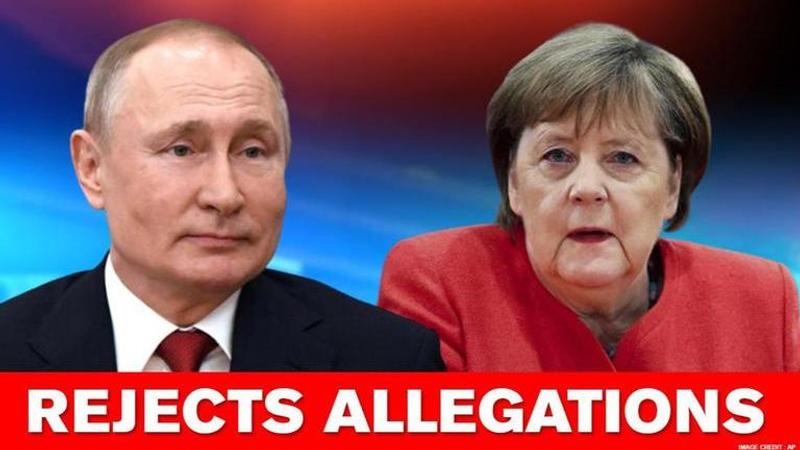Published 13:35 IST, September 4th 2020
Kremlin rejects Germany's allegations of Navalny poisoning, calls them 'empty noise'
Kremlin trashed the allegations of “intentional poisoning” of Navalny by Russian authorities, calling it Russian doctors and pro-Kremlin media's fabrication.

On September 3, Kremlin openly rejected accusations that Russian leader Putin was responsible for the poisoning of his political rival Alexei Navalny. In an address to the press, Kremlin said there were no grounds for sanctions to be imposed against Moscow or criminal investigations. It further trashed the allegations of “intentional poisoning” of Navalny by Russian authorities. The Russian government accused the Russian doctors and pro-Kremlin media of the fabrication of the victim’s deliberate poisoning narrative that outraged Navalny's allies who held the Kremlin responsible for poisoning the critic, according to reports.
Earlier, as Germany confirmed the nerve agent Novichok poisoning as the cause of Navalny’s coma and termed it as “an attempt to murder,” condemnation against Russia erupted worldwide by the international communities—including the UK, US, France, and Norway. Germany’s chancellor Merkel called for a thorough Russian investigation. According to reports, the EU, NATO, and several Western governments have asked Moscow to provide an explanation. However, Russia accused Berlin of failing to share “solid evidence”. Although, Germany's Chancellor in a presser announced that a German military lab identified and confirmed that the poison in Navalny's system is a variant of Novichok, a Soviet-era nerve agent.
In an AP report, Kremlin spokesman Dmitry Peskov said the accusations against the government "absolutely cannot be true and are rather an empty noise."We do not intend to take it seriously," Peskov added.
Citing that Navalsky’s condition may have been caused due to various other reasons, Peskov indicated that there was no need for Russia to launch a criminal investigation. If a substance that caused the condition is found, and if it is determined that it is poisoning, then there will be a reason for an investigation,” AP quoted Peskov as saying. However, Germany claimed that there was, in fact, "unequivocal evidence” into it. EU's foreign policy chief Josep Borrell asked Russia to cooperate with an international probe, asserting, that the 27-nation bloc would not rule out sanctions, according to media reports.
After being transferred to Charité hospital in Berlin, doctors declared that they found indications of "cholinesterase inhibitors" in Navalny’s system. The chemical agent was reportedly administered on Russian ex-double agent Sergei Skripal and his daughter in the English town of Salisbury two years ago in 2018. While the European Union called the incident an “assassination attempt” tensions have soared between Russia and the West.
"In the specified medical institution (Omsk hospital N1), A.A. Navalny was in the period from 20 to 22 August 2020 with a clinical diagnosis: the main one is a violation of carbohydrate metabolism, concomitant chronic pancreatitis with impaired externally and intrasecretory functions, exacerbation," — the materials of the request for legal assistance sent to Germany by the competent authorities of Russia, Russian doctors, as claimed by state INTERFAX report.
Banned chemical weaponry of Soviet era
According to a report by the global weapons agency, OPCW, Russia’s poisoning of Navalny with the toxic nerve agent raised concerns about the country’s possession and use of the banned chemical weaponry. Toxicological tests proved evidence of chemical nerve agent from the Novichok group, a statement by Chancellor Angela Merkel's spokesperson revealed. The agent was manufactured by the Soviet Union during the Cold War and has been banned under the Chemical Weapons Convention of 1997.
In another report, Steven Hall, the former CIA chief of Russia operations Chief said that "there's no doubt whatsoever" that Russian opposition leader Alexei Navalny was poisoned in an operation by Russia's government and intelligence services. US Secretary of State Mike Pompeo said that if reports about Navalny's poisoning "prove accurate, the United States stands in support of the European Union and demands a comprehensive investigation. UK's PM Boris Johnson said that it was "outrageous" that chemical weaponry was used by Russia.
Updated 13:35 IST, September 4th 2020





